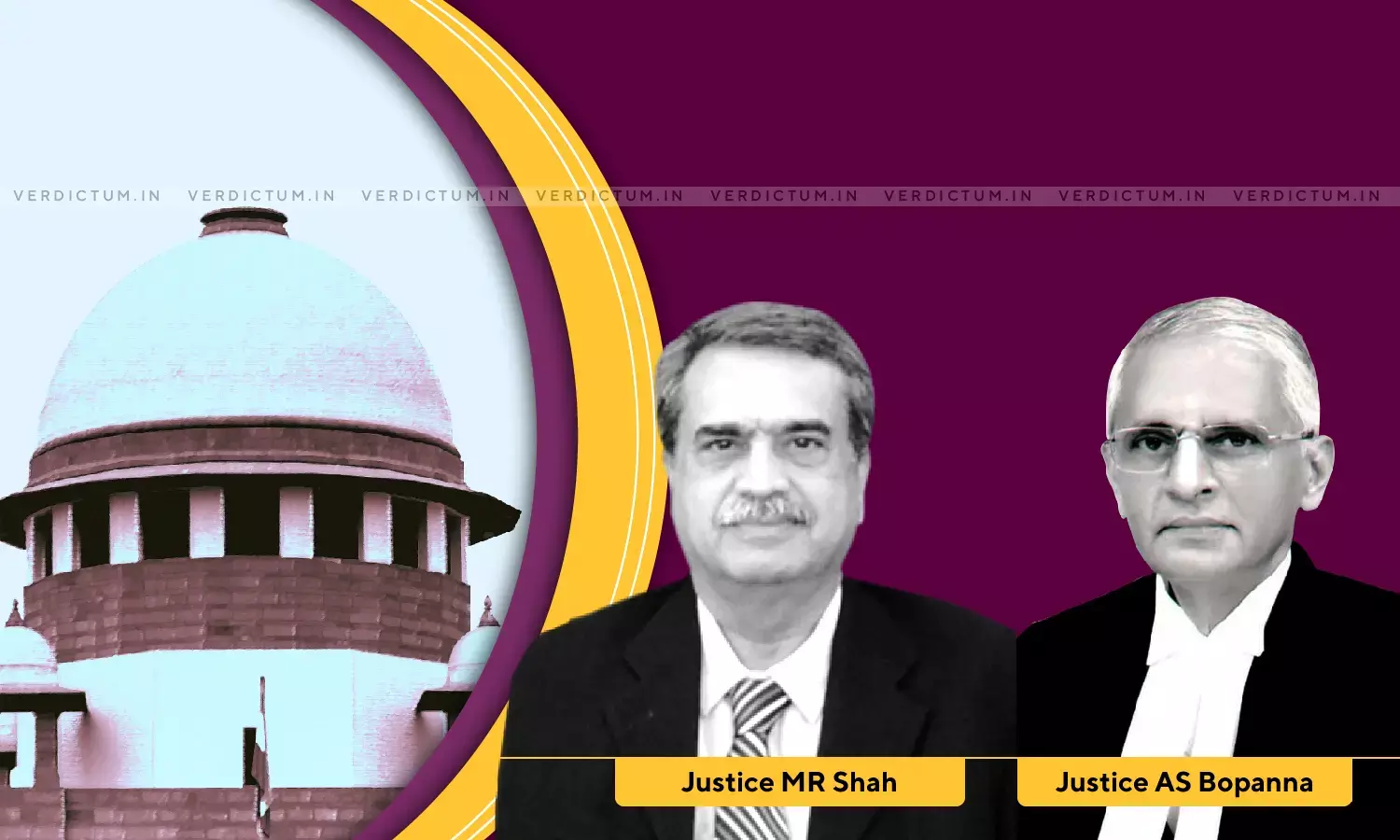Supreme Court Explains 'Resignation', 'Voluntary Retirement' And 'Late Entrant' In The Context Of Army Pension Regulation

In a case relating to eligibility for terminal benefits upon resignation from the Army after less than ten years of service, a Bench of the Supreme Court explained the concepts of resignation, premature/voluntary retirement and late entrant, in the context of the Pension Regulation of the Army, 1961.
The Bench of Justice MR Shah and Justice AS Bopanna observed that, "Even, there is a distinction between the "resignation" and "voluntary retirement". A person can resign at any time during his service, however, an officer cannot ask for premature/voluntary retirement unless he fulfills the eligibility criteria."
Facts of the Case
The appellant, Union of India, filed an appeal against an order passed by Armed Forces Tribunal (AFT) granting pensionary benefits to the respondent who resigned after serving the Army Medical Corps for less than ten years, in the year 2000. His resignation citing lack of promotion avenue was first rejected, but later accepted without terminal/pensionary benefits, pursuant to a direction by the High Court to reconsider the rejection. The case of the appellant was that the AFT had granted the pensionary benefits to the respondent while considering his service as a 'late entrant' and the resignation as 'voluntary retirement' even though he had not served for the requisite qualifying period for getting the benefit.
The Bench explained the requirements to be treated as a 'late entrant'
"As per Regulation 15 (of the Pension Regulations), a "late entrant" is an officer who is retired on reaching the prescribed age limit for compulsory retirement with at least 15 years commissioned service (actual). As the respondent did not retire on reaching the prescribed age limit for compulsory retirement, the respondent cannot be said to be a "late entrant". The purpose and object seems to be to give 5 years relaxation/grace for qualifying service for earning a retiring pension."
The Bench further stated
"As per Regulation 25(a), the minimum period of qualifying service actually rendered and required for earning a retiring pension shall be 20 years. However, if an officer is not able to complete the minimum period of qualifying service, i.e., 20 years and before completing 20 years of service he is attaining the age of superannuation and is retired on reaching the prescribed age limit of compulsory retirement, but has completed 15 years of qualifying service, he is considered as a "late entrant" and is entitled to pensionary benefits by getting 5 years grace period. Therefore, to that extent the same can be said to be a relaxation/grace of 5 years for getting the benefit of pensionable benefits provided the case falls within Regulation 15 and an officer is a "late entrant"."
On the 'voluntary retirement', the Bench noted
"To bring the case within Regulation 15 and get the benefit as a "late entrant", it is the case on behalf of the respondent that his application tendered on 15.04.2000 was not an application for "resignation", but it was a request for "voluntary retirement". The submission on behalf of the respondent that what was tendered on 15.04.2000 was not an application for "resignation" but it was an application for "voluntary retirement" has no substance and cannot be accepted for the following reasons: i) that the qualifying service for the purpose of "voluntary retirement" is minimum 10 years' service. On 15.04.2000, the respondent did not complete 10 years of service and therefore was not eligible for applying for "voluntary retirement" and therefore on 15.04.2000 otherwise also he could not have applied for "voluntary retirement"."
After having sought to resign, the appellant can't take a U turn to say that he had applied for voluntary retirement
"When the legislature, in its wisdom, brings forth certain beneficial provisions in the form of Pension Regulations from a particular date and on particular terms and conditions, aspects which are excluded cannot be included in it by implication. Therefore, having tendered the "resignation", the respondent has to suffer the consequences and now cannot be permitted to take 'U' turn and say that what the respondent wanted was "premature retirement" and not "resignation"."
Period of prior service and ante-date of commission granted can't be counted for pension benefit, the Bench noted
"Now so far as the reliance placed by the respondent on Regulation 19(h) and 19(j) of the Pension Regulations of the Army, 2008 to contend that a period of service in a central autonomous body as well as period of ante-date of commission granted to an officer in respect of possession of a Post-Graduate Qualification shall also be counted for the purpose of pensionable service, the same cannot be accepted, firstly on the ground that the same was not raised before the High Court/AFT. Even otherwise also, the Pension Regulations of the Army, 2008 shall not be applicable to the case of the respondent as the respondent would be governed by the Pension Regulations, 1961, which have no pari material provisions like Regulation 19(h) and 19(j) of the Pension Regulations of the Army, 2008. The same has no retrospective applicability. As such, the respondent had resigned on 15.04.2000 and even his resignation was accepted on 31.01.2007, much prior to the coming into force of the Pension Regulations of the Army, 2008."
The Bench allowed the appeal.
Parties: Union of India and Others Vs. Abhiram Verma

